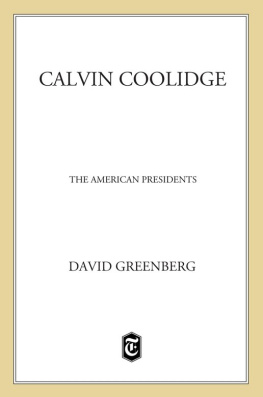Headley Alrick George - The Nature of the Will in the Writings of Calvin and Arminius
Here you can read online Headley Alrick George - The Nature of the Will in the Writings of Calvin and Arminius full text of the book (entire story) in english for free. Download pdf and epub, get meaning, cover and reviews about this ebook. year: 2017, publisher: Wipf and Stock Publishers, genre: Science. Description of the work, (preface) as well as reviews are available. Best literature library LitArk.com created for fans of good reading and offers a wide selection of genres:
Romance novel
Science fiction
Adventure
Detective
Science
History
Home and family
Prose
Art
Politics
Computer
Non-fiction
Religion
Business
Children
Humor
Choose a favorite category and find really read worthwhile books. Enjoy immersion in the world of imagination, feel the emotions of the characters or learn something new for yourself, make an fascinating discovery.

- Book:The Nature of the Will in the Writings of Calvin and Arminius
- Author:
- Publisher:Wipf and Stock Publishers
- Genre:
- Year:2017
- Rating:3 / 5
- Favourites:Add to favourites
- Your mark:
- 60
- 1
- 2
- 3
- 4
- 5
The Nature of the Will in the Writings of Calvin and Arminius: summary, description and annotation
We offer to read an annotation, description, summary or preface (depends on what the author of the book "The Nature of the Will in the Writings of Calvin and Arminius" wrote himself). If you haven't found the necessary information about the book — write in the comments, we will try to find it.
The Nature of the Will in the Writings of Calvin and Arminius — read online for free the complete book (whole text) full work
Below is the text of the book, divided by pages. System saving the place of the last page read, allows you to conveniently read the book "The Nature of the Will in the Writings of Calvin and Arminius" online for free, without having to search again every time where you left off. Put a bookmark, and you can go to the page where you finished reading at any time.
Font size:
Interval:
Bookmark:
A Comparative Study
Alrick George Headley

To Gwen
and our children, Garrit, Alaina, Andrew, and Amanda
Thus simply to will is the part of man, to will ill the part of corrupt nature, to will well the part of grace
John Calvin, Institutes , II.iii.
Free will is unable to begin or to perfect any true and spiritual good, without grace
James Arminius, Hippolytus, Works , :
I became interested in the theological differences between John Calvin and James (Jacobus/Jacob) Arminius during my college years, in the first half of the 1990 s. The Baptist church I grew up in faithfully proclaimed the unsearchable riches of Christ with vivid vibrancy. Though all the pastors of my youth had reputable divinity and theological degrees, I cannot recall any of them mentioning Calvin or Arminius, nor anything about Calvinism or Arminianism. These pastors, who were quite familiar with the differing viewpoints, did not feel the need to introduce that debate to their congregants. Their primary focus was on expositing the living and abiding word of God.
The first time I became aware of the great divide that exists between Calvin and Arminius and between Calvinism and Arminianism was during my first year at a Reformed college. When fellow students asked me what denomination I belonged to, I told them I was a Baptist. Naively, I had assumed being a Baptist was acceptable at a Christian college, since I considered myself to be a regenerate member of the body of Christ. However, I soon realized that being a Baptist at a Reformed college caused one to be viewed with some amount of suspicion. For, in response to my Im a Baptist answer, I was told this means I am an Arminian. Having never heard this term, Arminian, I further inquired about the meaning of this appellation that was being ascribed to me. I was told that Baptists are Arminians who do not believe in the sovereignty of God. I was further told that, because I was a Baptist, and by extension an Arminian, I believed I had somehow saved myself by my own free will, as opposed to Calvinists, who believed that God is the one who saved them.
This was a lot for a non-theological yet Bible-believing and born again Christian to take in. Nevertheless, I immediately came to the conclusion that I must not be an Arminian, since I have always believed in the sovereignty of God and it had never occurred to menot oncethat I saved myself and that my salvation wasnt somehow the work of God. When I made a public profession of my faith and was asked by the elders, Why are you coming now to be baptized and give your life to Christ?, I remember sitting before elders of my church and giving a very Calvinistic answer. In my own inarticulate manner, and with an answer that showed a lack of familiarity with the intricacies of theological matters, I told the elders that God elects people and God saved me and it doesnt manner when I come; what matters is that I am coming now. The thought that I saved myself had never occurred to me until it was introduced to me by my Calvinists friends. As a result, in light of what I remembered saying in my profession of faith, I came to another conclusion: I must be a Calvinist; I just didnt know it.
The realization that I must not be an Arminian but an ignorant Calvinist did not put the matter to rest. Since the label Arminian, about which I had no knowledge, was being ascribed to me, I felt it my duty to investigate what Arminians actually believe. For, either my fellow (Reformed) students were ignorant of what Baptists believe, or they didnt truly understand what Arminius actually taught. Therefore, in order to satisfy my own lack of knowledge and clarify apparent misunderstandings, I began to readhiding as I didthe writings of James Arminius in the college library. I hid because by this time I realized that to be labelled an Arminian at a Reformed college was, in the minds of many, tantamount to having a plague for which a cure was needed. Moreover, I hid because I did not want to perpetuate this (false) belief that I was an Arminian by being caught reading books by Arminius himself.
After a few weeks of reading, I got to the section at the end of one of the three volumes where Arminius often makes statements like, That I never said, and repeatedly claims that many views being attributed to him are not his but flagrant misrepresentations. He at times refer to the mischaracterizations of his theological views as falsities and slander. Though from a systematic and historical theological point of view, I did not then understand much of what I was reading, that Arminius was denying some of the theological deviations attributed to him was quite clear to me. Here was a man who felt he was misunderstood and was being misrepresented.
With my new knowledge, and armed with a few quotes, I began to ask students and some professors if they had ever read anything written by Arminius. To my surprise and dismay, all the students and all the professors I asked at the time had never read Arminius. My surprise was elevated to a measure of shock when I realized that those students who were the most vocal in their opposition to Arminianism had never read anything written by Arminius. I thought to myself that this posture of dogmatically commenting on Arminius and his theological beliefs without having read him is inconsistent with the love for truth and for neighbor that Christians ought to possess. I felt then that it was incumbent upon me to find out what Arminius actually believed and to sort out wherein lies the difference between his views and those of John Calvin. I had read enough during my college years to conclude that there is much that I didnt understand about this debate between the Calvinists and the Arminians; however, further study would have to wait.
During one of my years in seminary, I went into one of my professorss offices, as students sometimes do, and noticed that my Reformed professor had the three-volume set of Arminiuss works tucked away at the bottom of his bookshelves. I thought to myself, Wow! Here is someone I can dialogue with about Arminius and his theology. But I was again disappointed when I asked this professor, Have you read those books by Arminius? and he replied, No, I have never read them, but I have heard that they are the most boring books you will ever read. After that experience, I stopped asking Reformed students and professors if they have ever read Arminius and I lost hope that I would ever meet someone of a Reformed and Calvinistic persuasion that has actually read Arminius.
Nevertheless, my interest in studying Arminius for the sake of the truth never abated. After graduating from one seminary, I had the opportunity to pursue another degree at another Reformed seminary. Here I encountered Dr. Richard Muller, who not only had read Arminius but had written a seminal work on the theology of Arminius. Being encouraged by this fact, I again began to read Arminiuss writings. Throughout my college and initial seminary education, I was also reading Calvins writings, particularly his sermons, and came to the conclusion that he too was often misrepresented by well-meaning Calvinists. I found that he was more of a pastor than the rigid systematic theologian he was often presented to be. Therefore, over the years I have come to enjoy reading the writings of both Calvin and Arminius and find them to be very stimulating. After much reading and reflection, I decided to share with a wider audience what I have learned over the years in the form of this little book.
The purpose of this book, then, is to compare Calvins and Arminiuss understandings of the will in the fourfold state of man: the prelapsarian state, the postlapsarian state, the redeemed state, and the glorified state. I follow the fourfold model bequeathed to us by Augustine in his popular analysis of sin, with his posse non peccare, non posse non peccare, posse peccare et non peccare, and non posse peccare . In the introductory chapter, I explain the method of analysis used in this book and make relevant clarifications. Here I introduce the reader to the current state of scholarly literature and define major concepts and words used herein.
Font size:
Interval:
Bookmark:
Similar books «The Nature of the Will in the Writings of Calvin and Arminius»
Look at similar books to The Nature of the Will in the Writings of Calvin and Arminius. We have selected literature similar in name and meaning in the hope of providing readers with more options to find new, interesting, not yet read works.
Discussion, reviews of the book The Nature of the Will in the Writings of Calvin and Arminius and just readers' own opinions. Leave your comments, write what you think about the work, its meaning or the main characters. Specify what exactly you liked and what you didn't like, and why you think so.










